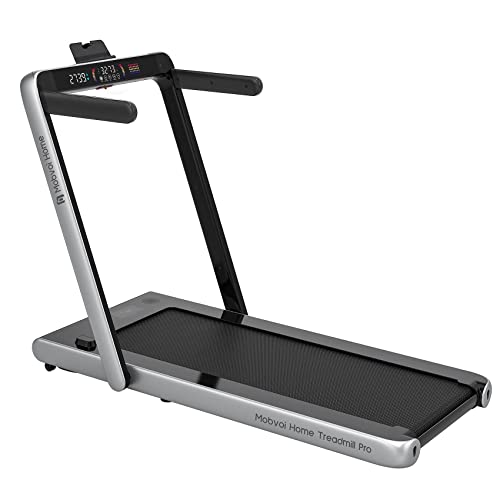Discovering the Manual Incline Treadmill: A Comprehensive Guide
As the physical fitness market continuously develops, with new gadgets and makers striking the market, one piece of devices has remained a staple in numerous homes and gyms: the treadmill. Particularly, the manual incline treadmill uses an unique method to cardiovascular fitness training. This guide explores the features, advantages, and considerations of using a manual incline treadmill.
What is a Manual Incline Treadmill?
A manual incline treadmill is a non-motorized treadmill that requires users to power their movement by walking or operating on the belt. Unlike traditional treadmills, which rely on electrical power to move the belt, manual incline treadmills depend exclusively on the user's energy. The incline setting, which can be adjusted, assists replicate uphill running, supplying a reliable workout.
Key Features of Manual Incline Treadmills
| Function | Description |
|---|---|
| Manual Operation | Users should propel the belt themselves, making it a self-paced exercise. |
| Adjustable Incline | Incline settings can be adjusted, using differed resistance for a tougher obstacle. |
| Compact Design | Often more light-weight and compact than motorized treadmills, making them much easier to save. |
| Durable Construction | Usually developed with durable products, developed to endure strenuous use. |
| Digital Display | Some designs may include a standard digital display to reveal time, range, and calories burned. |
Benefits of Using a Manual Incline Treadmill
1. Enhanced Cardiovascular Fitness
The manual incline treadmill successfully raises heart rate, leading to enhanced cardiovascular health. visit the website requires more effort from the muscles, thus increasing the overall workout intensity.
2. Customizable Workouts
With manual treadmills, users have complete control over their speed and incline. This feature enables them to tailor exercises to line up with fitness objectives, whether concentrating on endurance structure or interval training.
3. Lower Operating Costs
Manual incline treadmills do not require electricity, making them a cost-effective option to conventional treadmills. This economical element appeals to those looking to enhance their home health club without incurring high energy bills.
4. Engaging Full-Body Workout
Running or walking on an incline engages numerous muscle groups, consisting of the legs, glutes, and core. This total-body activation assists tone and enhance the body while burning extra calories.
5. Reduced Risk of Injury
The low-impact nature of a manual incline treadmill can be less taxing on the joints compared to high-impact aerobic workouts. Nevertheless, users need to still practice excellent kind and start gradually to reduce the risk of strains or injuries.
Considerations When Using a Manual Incline Treadmill
Safety First
While manual incline treadmills have numerous advantages, there are some safety considerations to remember:
- Falling Hazard: Since users propel the belt themselves, it is very important to maintain a consistent pace to prevent losing balance.
- Incline Levels: Adjusting the incline during use can be challenging and needs mindful attention to preserve stability.
Appropriate Form and Technique
To make the most of the benefits while lessening the danger of injury, users need to emphasize correct running or walking type. This consists of keeping the back straight, shoulders unwinded, and arms in a natural position.
How to Choose the Right Manual Incline Treadmill
Picking the best manual incline treadmill is vital to accomplishing physical fitness goals. Below are key elements to consider:
| Criteria | Recommendations |
|---|---|
| Weight Capacity | Guarantee the treadmill can support your weight; a lot of have capabilities varying from 250 to 400 pounds. |
| Adjustability | Look for treadmills with numerous incline settings to supply workout variety. |
| Portability | Consider foldable models if storage space is limited. |
| Convenience Features | Inspect for non-slip surfaces and cushioned running locations to boost comfort. |
Regularly Asked Questions (FAQ)
1. How do I maintain a manual incline treadmill?
To keep a manual treadmill, routinely inspect the belt for wear and ensure it runs efficiently. Tidy the frame and running surface area, and check the bolts and screws for indications of loosening.
2. Is a manual incline treadmill suitable for newbies?
Yes, manual incline treadmills can be ideal for newbies. Users can start at a sluggish speed and gradually increase intensity. However, it's vital to comprehend one's fitness level and start thoroughly.
3. Can I perform interval training on a manual incline treadmill?
Definitely. The adjustable incline feature permits users to create diverse exercises, perfect for interval training. Alternate between walking and performing at various slopes to keep exercises engaging and challenging.
4. Is a manual incline treadmill quieter than a motorized one?
Yes, due to the absence of a motor, manual incline treadmills generally run more silently, making them an exceptional option for shared spaces.
5. Just how much area do I require for a manual incline treadmill?
Manual incline treadmills generally inhabit less area than motorized models. Nevertheless, users need to ensure there's ample area for movement around the treadmill for security.
The manual incline treadmill offers a distinct blend of advantages and versatility, making it an outstanding choice for those seeking to improve their exercise regimen without depending on electrical power. From improved cardiovascular physical fitness to adjustable training options, it provides a detailed technique to fitness. By understanding its features, advantages, and security factors to consider, users can pick the right design and integrate it successfully into their workout routine. Whether used in a home fitness center or a bigger physical fitness facility, a manual incline treadmill can be a vital tool for those focused on health and wellness.

